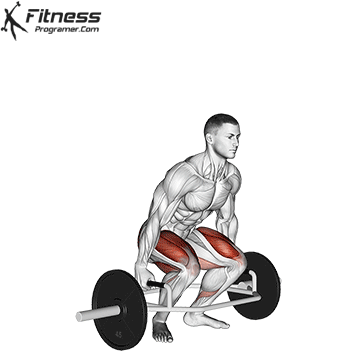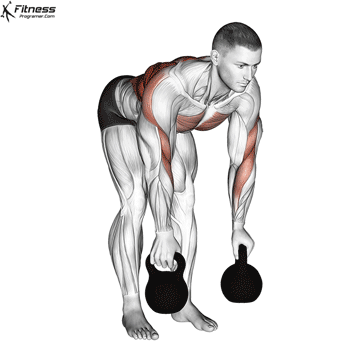When it comes to building muscle strength, everyone is looking for ways to progress faster. As a coach, I’ve worked with clients with countless goals, from lifting heavier weights to feeling more capable in their daily lives. The good news? There are proven strategies to quickly improve your fitness while staying safe and sustainable. Strength doesn’t build overnight, but following these tips can greatly speed up your progress. Learn how to accelerate your strength gains and break down the barriers that are holding you back.
1. Prioritize compound movements
If you’re serious about building strength, prioritize compound exercises. the study For the same total effort, multi-joint exercises such as squats, deadlifts, and bench presses increase both strength and cardiovascular fitness compared to single-joint exercises such as leg extensions and bicep curls. This indicates that there is potential for improvement.


Squats, deadlifts, bench presses, rows, and overhead presses work multiple muscle groups at the same time, triggering a powerful response from your nervous system. The secret behind compound movements is that you can lift more weight overall, greatly accelerating your strength gains.
Combined or separated? So which one should you do first?
Pro tip: If your goal is to build strength, compound exercises are a good place to start. Start your workout with compound lifts when your energy is highest to maximize strength output and muscle recruitment.
2. Embrace gradual overload
The basis of any strength program is progressive overload. This simply means gradually increasing the weight, reps, or intensity of your exercises. Muscles respond to this additional stress by becoming stronger over time. If you’re lifting the same weight or doing the same reps every week, it’s time to make a change.
How to do it effectively:
- Gain weight: Aim to increase the weight you lift every 1-2 weeks, even if it’s only by a few pounds.
- Add a contact person. Once you can lift a certain amount of weight comfortably, try a few more repetitions.
- Reduce breaks: Reducing your rest time by a few seconds each week allows your body to perform under greater fatigue, increasing your endurance and recovery.
3. Incorporate low-rep, high-weight training
To build maximum strength, incorporate low-rep, high-weight training into your routine. For major compound lifts, aim for sets of 3-5 reps at 80-90% of your 1-rep max (1RM). This strategy specifically targets muscle fibers that contribute to strength.
Note: If you are a beginner, do not jump into low rep training. Build a solid foundation with higher reps (8-12) and perfect your form to prevent injury, then consider moving to a 3×5 strength training program.
4. Focus on perfecting your form
Good form is a shortcut to building strength faster. Proper form allows you to lift more safely and efficiently. Plus, training with proper form can help prevent injuries, so you don’t miss out on your strength goals.

Form tips: Make sure you are moving smoothly on each lift before adding more weight. Train your core, utilize a full range of motion, and control each part of your movements.
5. Optimize your recovery
Muscles don’t grow in the gym. When you rest, you grow. When you train hard, your body takes time to repair and strengthen your muscle fibers. Without adequate recovery, you can become stagnant and increase your risk of injury.
Important recovery tips:
- Overtraining: Trying to lift heavy things every day increases your risk of burnout and injury. Balance workout intensity and recovery.
- sleep: Aim for 7 to 9 hours of quality sleep each night.
- nutrition: Protein is essential for muscle repair, so consume about 1.6 to 2.2 grams of protein per kilogram of body weight.
- Active recovery: Low-intensity activities like walking, cycling, and even yoga can keep your muscles active while resting.
6. Fuel your body properly
To get the most out of strength training, your body needs the right fuel. A balanced diet with adequate protein, complex carbohydrates, and healthy fats is essential for muscle repair, recovery, and growth.
Nutritional basics for muscle building:
- protein: In order to support muscle repair, take approximately 1.6 to 2.2g per 1kg of body weight.
- carbohydrates: Provides the energy needed to maintain physical strength during intense training.
- fat: Contains healthy fats that support hormonal function and sustained energy.
7. Embrace periodization
Periodization is a systematic approach to building a workout. Alternating between high and low intensity phases optimizes strength gains while reducing the risk of overtraining and injury.
approach: A cycle of high-intensity, low-repetition training for several weeks, followed by a phase of increasing repetitions at a moderate intensity. the study Regular training programs have been shown to lead to faster strength gains than non-regular training programs.
8. Replenish wisely
While certain supplements can support muscle gains, they should complement, not replace, a solid diet and training routine. Here are some things that may help you strengthen your strength and speed up your recovery.
- Creatine monohydrate: One of the most researched and proven supplements for increasing physical fitness.
- Protein powder: A convenient way to ensure you reach your protein goals.
- Beta alanine: Helps improve endurance during high-intensity exercise.
- Caffeine: Caffeine isn’t just in your morning coffee. This is a powerful pre-workout supplement that can increase focus, energy, and power output.
9. Track your progress
Tracking is an underrated but powerful tool for improving strength. Logging your workouts makes it much easier to see what works for you and adjust your program as needed. Additionally, tracking your numbers provides a clear visual representation of your progress, which is extremely motivating.
Tracking method: Use the workout planner to record your exercises, sets, reps, and weight lifted. Keep an eye on your lifting stats each week to see your progress and set new goals.
final thoughts
Building physical fitness is a journey, not a race. Following these tips will not only help you improve your strength faster, but will also help you stay motivated and avoid injury. Stay committed, keep pushing your limits, and celebrate every progress you make along the way.





